Throughout film history, most biopics follow a simple linear structure, most commonly called “cradle to the grave.” It is a retelling of the subject’s life, a recap of their greatest hits, and cutting anything morally complex about their life to make the subject more likable. However, various filmmakers have successfully made biopics that challenge preconceived notions of what a biopic film should be. These filmmakers created new narrative structures, experimented visually and sonically, and even changed the perspective of how we view this real-life figure. With the news that Christopher Nolan’s “Oppenheimer” is now the highest-grossing biopic film of all time, officially taking over 2018’s “Bohemian Rhapsody” at the box office, it’s time to look back at some of the best examples of biographical films that challenged the status quo and showcased the very best of how film could shape our understanding of a person’s life.
“Mishima: A Life In Four Chapters” (1985)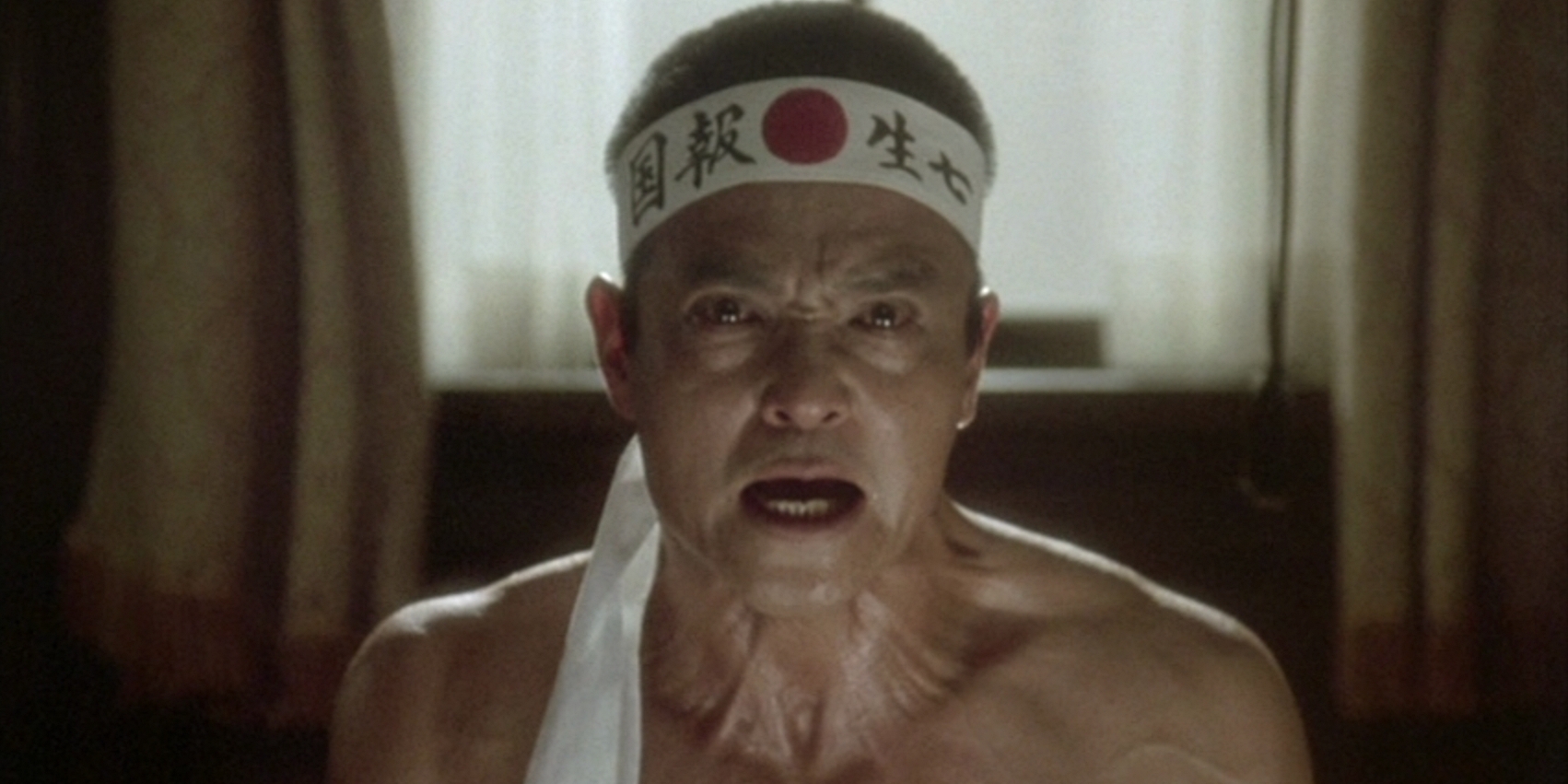 Paul Schrader’s masterpiece combines all his interests and themes into one portrait. It is a film with different aesthetics for each section; the final day of Mishima’s life is shot in color in a documentary style, the flashbacks to his life are done in black and white, and the three recreations of three of his novels that tie directly into the themes of the film and Mishima’s life are full of color and stunning production design. This approach thoroughly dissects everything about the famous writer, from his work, dreams, and demons to what drove him in life. The iconic Philip Glass score shifts along with the house-of-card-like structure of the film. Every piece of the film works in tandem and adds more meaning the deeper the film gets. Once the final scene plays out, it connects every segment into a crescendo that connects all the dots and instantly gets to the truth of this complicated, divisive genius. It’s a beautiful achievement in storytelling, filmmaking, and the culmination of Scharder’s oeuvre. Schrader has made plenty of great films since “Mishima,” but he will never top this crowning achievement.
Paul Schrader’s masterpiece combines all his interests and themes into one portrait. It is a film with different aesthetics for each section; the final day of Mishima’s life is shot in color in a documentary style, the flashbacks to his life are done in black and white, and the three recreations of three of his novels that tie directly into the themes of the film and Mishima’s life are full of color and stunning production design. This approach thoroughly dissects everything about the famous writer, from his work, dreams, and demons to what drove him in life. The iconic Philip Glass score shifts along with the house-of-card-like structure of the film. Every piece of the film works in tandem and adds more meaning the deeper the film gets. Once the final scene plays out, it connects every segment into a crescendo that connects all the dots and instantly gets to the truth of this complicated, divisive genius. It’s a beautiful achievement in storytelling, filmmaking, and the culmination of Scharder’s oeuvre. Schrader has made plenty of great films since “Mishima,” but he will never top this crowning achievement.
“Marie Antoinette” (2006)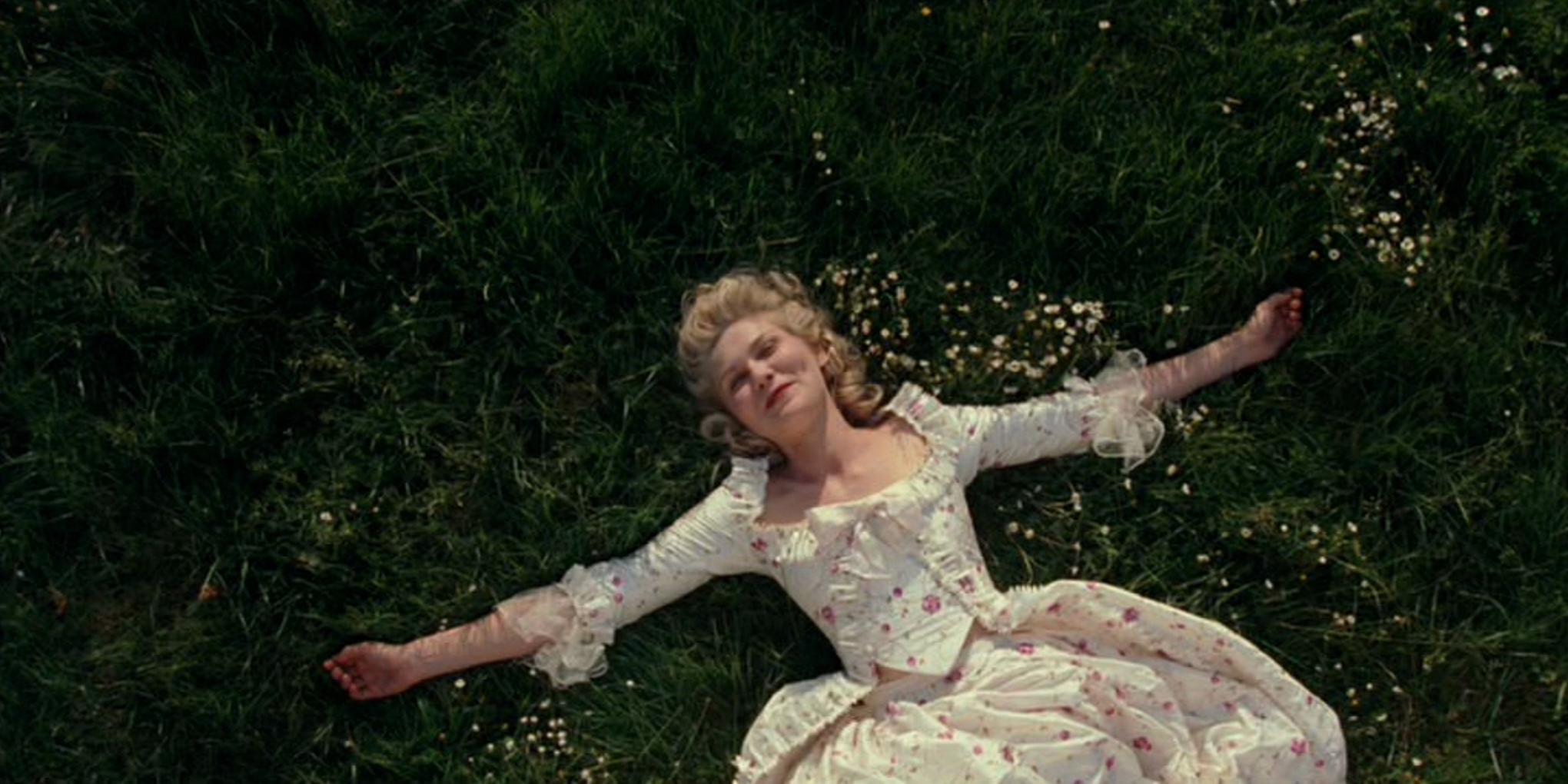 Sofia Coppola took her usual themes of loneliness, privilege, and adolescence and applied them to the life of Marie Antoinette. Ignoring historical accuracy, it switched out the classical music with alternative rock and made the script as modern sounding as possible. It might have annoyed historians, but “Marie Antoinette” has endured as Sofia Coppola’s best film, not named “Lost in Translation.” Other than being an utter treat for the eyes with its Oscar-winning costume design, production design, and the added benefit of being allowed to film at Versailles. It’s a gorgeous period piece that acts like a coming-of-age film set in the 2000’s. No French accents are to be found here. Instead, Coppola focuses on Marie Antoinette, a girl who has no control over her life, wants independence but can never have it, and tries to rebel in her own way. The dialogue sounds like how people talk today, which should be distracting but isn’t. The music choices should take the audience out of the movie, yet it feels like it belongs there. Coppola is sympathetic to the titular real-life Queen and surprisingly makes you feel bad when they are forced to flee Versailles during the French Revolution. The film doesn’t show Marie’s bloody end, but the loss of Versailles feels like losing a friend. The film is anchored by a pitch-perfect Kirsten Dunst, who gives Marie humanity and depth that had never been seen in a mainstream film—the best showcase of what Sofia Coppola has to offer the cinematic world.
Sofia Coppola took her usual themes of loneliness, privilege, and adolescence and applied them to the life of Marie Antoinette. Ignoring historical accuracy, it switched out the classical music with alternative rock and made the script as modern sounding as possible. It might have annoyed historians, but “Marie Antoinette” has endured as Sofia Coppola’s best film, not named “Lost in Translation.” Other than being an utter treat for the eyes with its Oscar-winning costume design, production design, and the added benefit of being allowed to film at Versailles. It’s a gorgeous period piece that acts like a coming-of-age film set in the 2000’s. No French accents are to be found here. Instead, Coppola focuses on Marie Antoinette, a girl who has no control over her life, wants independence but can never have it, and tries to rebel in her own way. The dialogue sounds like how people talk today, which should be distracting but isn’t. The music choices should take the audience out of the movie, yet it feels like it belongs there. Coppola is sympathetic to the titular real-life Queen and surprisingly makes you feel bad when they are forced to flee Versailles during the French Revolution. The film doesn’t show Marie’s bloody end, but the loss of Versailles feels like losing a friend. The film is anchored by a pitch-perfect Kirsten Dunst, who gives Marie humanity and depth that had never been seen in a mainstream film—the best showcase of what Sofia Coppola has to offer the cinematic world.
“I’m Not There” (2007)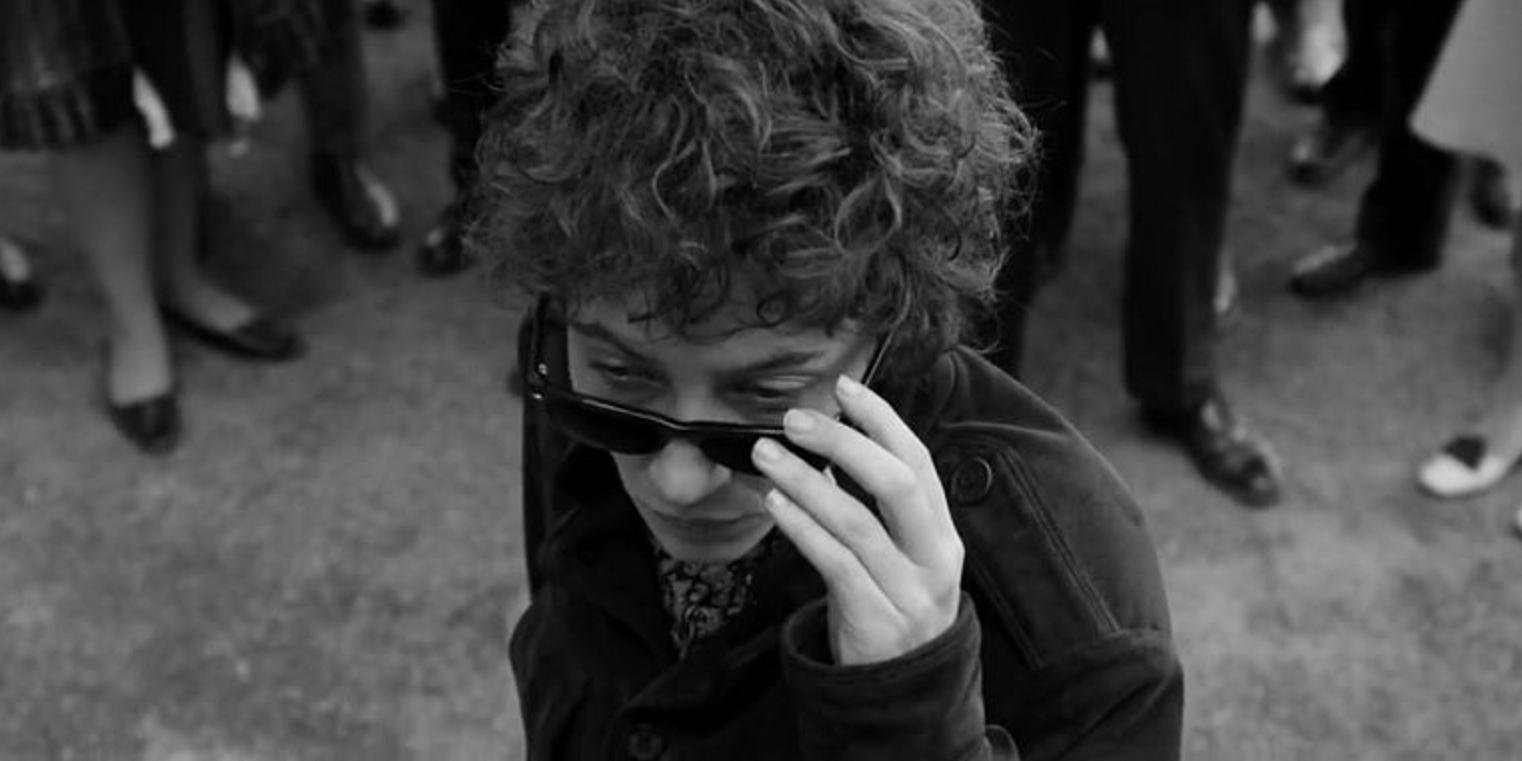 Music biopics are the most cliche bio sub-genre. They typically follow the greatest hits with the rise and fall narrative, with the artist’s soundtrack playing over various montages. This sub-genre is so easy to make fun of that it was even parodied by the film “Walk Hard: The Dewey Cox Story.” It takes a real, unique filmmaker to make a music biopic artistically interesting and thematically rich. Todd Haynes is one of those filmmakers, and his Bob Dylan biopic “I’m Not There” shatters the mold of every music biopic. Six different actors portray six different personas and various periods of Bob Dylan’s career. It doesn’t matter how old or race or gender this persona is. All that matters is that each person represents the spirit of Bob Dylan. Every performance fits perfectly; each is distinctive and unique from one another. Every section has a unique style courtesy of Edward Lachman’s gorgeous cinematography. Such a bold swing shouldn’t have worked, yet it gets to the core of what makes Bob Dylan the unknowable, larger-than-life figure he has been in popular culture for over half a century. It’s an approach for which more biopics, especially music biopics, should strive. Yet this is the first time anyone has tackled a music biopic like this since its release. And that’s why Haynes’s film remains as bold as ever.
Music biopics are the most cliche bio sub-genre. They typically follow the greatest hits with the rise and fall narrative, with the artist’s soundtrack playing over various montages. This sub-genre is so easy to make fun of that it was even parodied by the film “Walk Hard: The Dewey Cox Story.” It takes a real, unique filmmaker to make a music biopic artistically interesting and thematically rich. Todd Haynes is one of those filmmakers, and his Bob Dylan biopic “I’m Not There” shatters the mold of every music biopic. Six different actors portray six different personas and various periods of Bob Dylan’s career. It doesn’t matter how old or race or gender this persona is. All that matters is that each person represents the spirit of Bob Dylan. Every performance fits perfectly; each is distinctive and unique from one another. Every section has a unique style courtesy of Edward Lachman’s gorgeous cinematography. Such a bold swing shouldn’t have worked, yet it gets to the core of what makes Bob Dylan the unknowable, larger-than-life figure he has been in popular culture for over half a century. It’s an approach for which more biopics, especially music biopics, should strive. Yet this is the first time anyone has tackled a music biopic like this since its release. And that’s why Haynes’s film remains as bold as ever.
“Persepolis” (2007)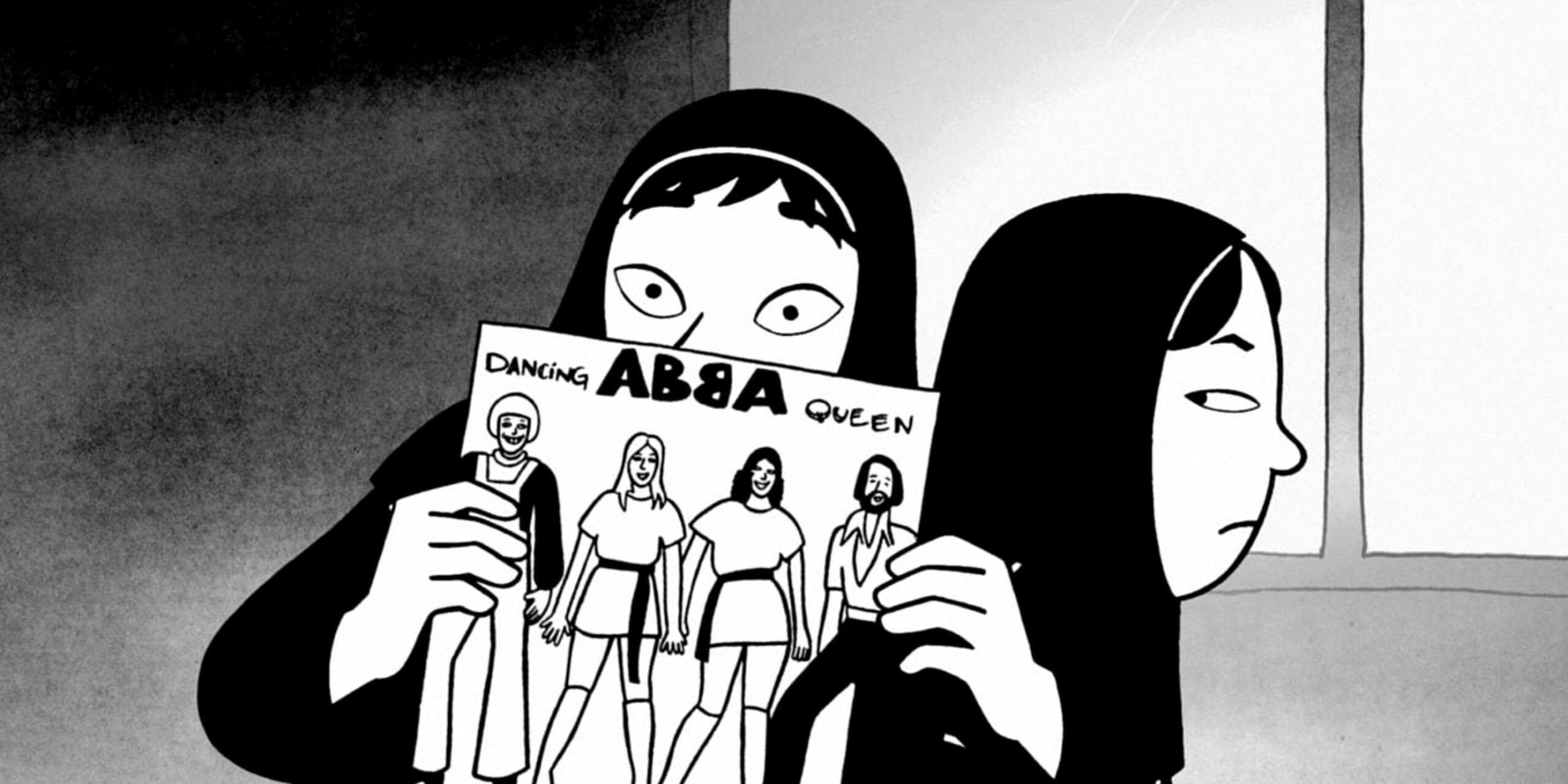 An unconventional adaptation of an unconventional graphic novel, Marjane Satrapi’s autobiographical “Persepolis” was first a primarily black-and-white graphic novel and then turned into a mostly black-and-white animated film with the same art style as the graphic novel directed by the same person who wrote the graphic novel. The film is an outlier regarding the art of adaptation and animated films. Very rarely do we see something this personal in 2 different mediums done by the same person. Yet, in both cases, the results speak for themselves—a powerful coming-of-age story of Marjane’s childhood and young adult years during the Iranian Revolution and beyond. “Persepolis” may be mostly in black and white, but that artistic choice serves a thematic purpose. When living in a country during a major upheaval like Marjane did in Iran, everything is portrayed in black and white. You’re either for the revolution or against the revolution and must be destroyed. Trying to find your identity in all the uncertainty and violence is the focal point of “Persepolis.” The beautiful animation and excellent voice work make this personal coming-of-age story one of the best-animated films of the 2000s and a unique way to tell an autobiography.
An unconventional adaptation of an unconventional graphic novel, Marjane Satrapi’s autobiographical “Persepolis” was first a primarily black-and-white graphic novel and then turned into a mostly black-and-white animated film with the same art style as the graphic novel directed by the same person who wrote the graphic novel. The film is an outlier regarding the art of adaptation and animated films. Very rarely do we see something this personal in 2 different mediums done by the same person. Yet, in both cases, the results speak for themselves—a powerful coming-of-age story of Marjane’s childhood and young adult years during the Iranian Revolution and beyond. “Persepolis” may be mostly in black and white, but that artistic choice serves a thematic purpose. When living in a country during a major upheaval like Marjane did in Iran, everything is portrayed in black and white. You’re either for the revolution or against the revolution and must be destroyed. Trying to find your identity in all the uncertainty and violence is the focal point of “Persepolis.” The beautiful animation and excellent voice work make this personal coming-of-age story one of the best-animated films of the 2000s and a unique way to tell an autobiography.
“Spencer” (2021) & “Jackie” (2016)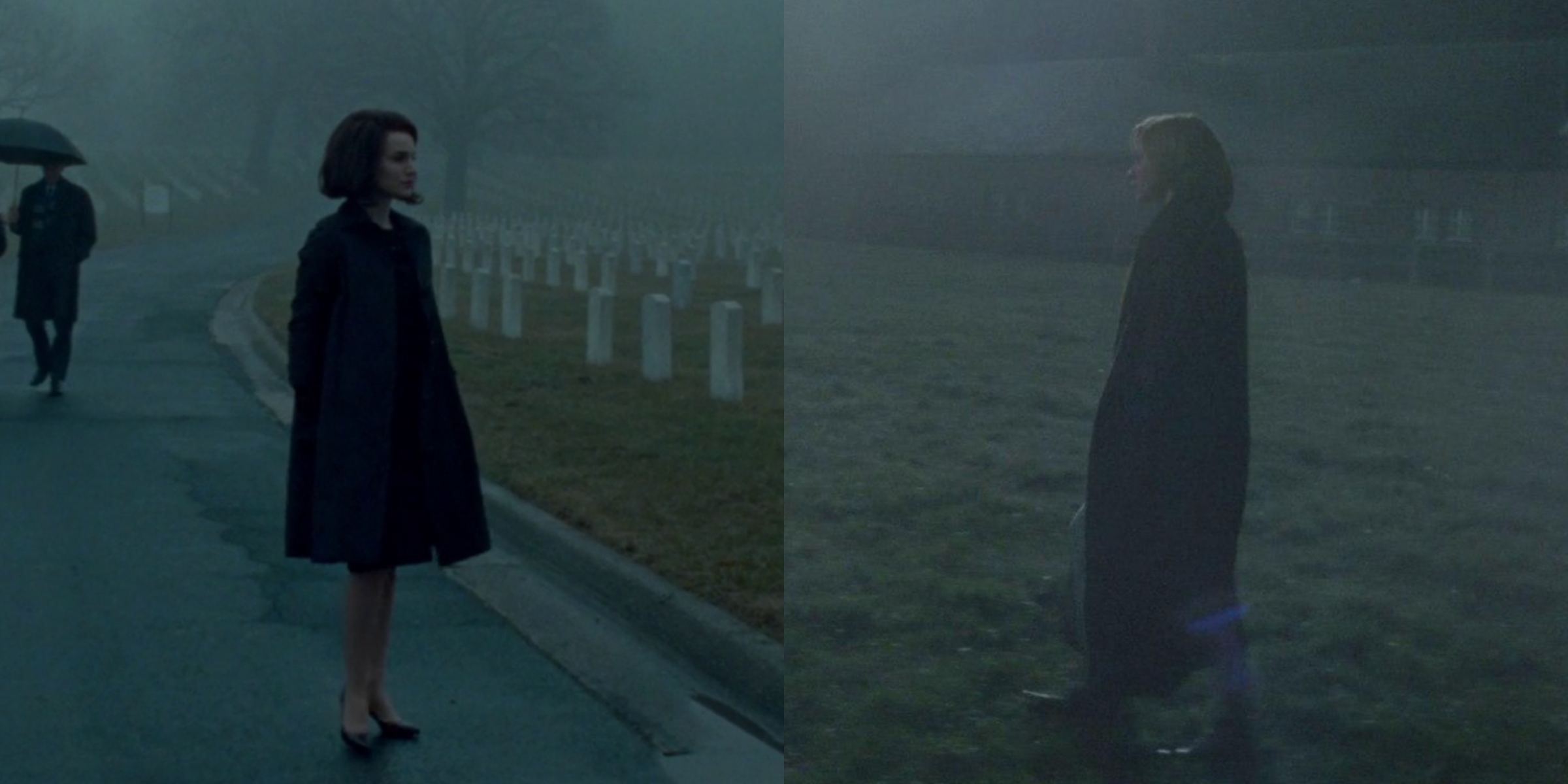 Pablo Larraín has made two unique biopics about two famous wives of two famous people. They both struggle and are tormented by either their husband’s violent death or feeling trapped in a vital marriage they are miserable in. Jackie Kennedy and Princess Diana surprisingly share a lot in common. Larraín takes an artistic approach to both films. Both films are very dark and heavy; a string-filled haunting score is heard throughout them, the cinematography feels very claustrophobic, and both women get their version of a “happy ending,” which they never got in real life. The lead performances from Natalie Portman and Kristen Stewart are stunning and should have received Oscars. Both are psychological dramas exploring their historical figure sympathetically and sitting in their pain and trauma. They are both haunting yet moving portraits of these famous women. Larraín’s next project is a biopic of opera singer Maria Callas, so expect a similar approach to what he did with “Jackie” and “Spencer” to close out his biopic trilogy.
Pablo Larraín has made two unique biopics about two famous wives of two famous people. They both struggle and are tormented by either their husband’s violent death or feeling trapped in a vital marriage they are miserable in. Jackie Kennedy and Princess Diana surprisingly share a lot in common. Larraín takes an artistic approach to both films. Both films are very dark and heavy; a string-filled haunting score is heard throughout them, the cinematography feels very claustrophobic, and both women get their version of a “happy ending,” which they never got in real life. The lead performances from Natalie Portman and Kristen Stewart are stunning and should have received Oscars. Both are psychological dramas exploring their historical figure sympathetically and sitting in their pain and trauma. They are both haunting yet moving portraits of these famous women. Larraín’s next project is a biopic of opera singer Maria Callas, so expect a similar approach to what he did with “Jackie” and “Spencer” to close out his biopic trilogy.
“Oppenheimer” (2023)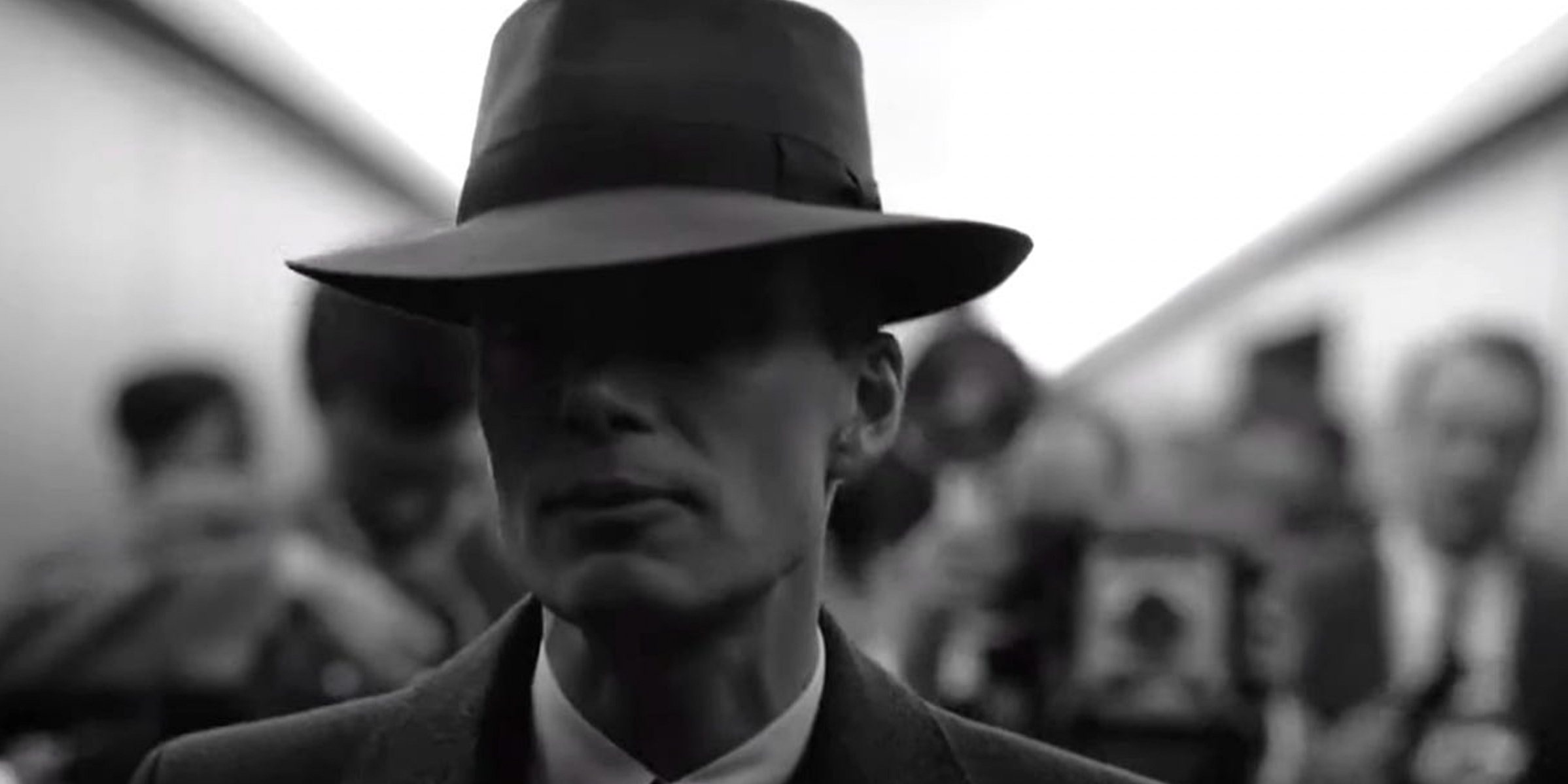 “Oppenheimer” is more than just a biographical drama on one of human history’s most complicated and ambiguous men. Everything that Christopher Nolan has learned over ten feature films is in “Oppenheimer,” his most ambitious film. Behind Cillian Murphy’s expressive eyes, filmed in close-up by an IMAX camera, lies a deeply conflicted and haunted man. Nolan takes us inside Oppenheimer’s mind; we see chemical and physical reactions that are impossible to see by the naked eye, yet Oppenheimer can see them in his mind. Brief flashes to his memories that we have already seen played out, him imagining the fallout of his nuclear bomb or having his affair with Jean Tatlock on display at his security hearing. Nolan wrote the screenplay in the first person, a rarity when it comes to writing and structuring a screenplay. There’s another perspective shown in the film: that of Lewis Strauss. Shown only in black and white from his POV, Strauss is the Salieri to Oppenheimer’s Mozart. A man who was jealous and felt mistreated by Oppenheimer and made it his mission to destroy his credibility. The first two hours play more like a thriller, cross-cutting between Oppenheimer’s early career, the Manhattan Project, Strauss’s confirmation hearing, and Oppenheimer’s security hearing at a rapid pace. After the Manhattan Project is concluded, the film shifts into its final act, an interconnected courtroom drama that was previously established in the previous beginning segment of the film yet still has that thrilling pace and energy of the last two acts. All of this is backed by an intense dread-inducing score by Ludwig Goransson, creative sound work, and Jennifer Lame’s integral editing. What Nolan achieves with “Oppenheimer” is a tapestry of a troubled genius, combined with the act of American mythmaking, the horror of American exceptionalism, and humanity’s own inability to deal with their actions. It’s Nolan’s heaviest film thematically, yet it’s so entertaining and watchable at the same time. At the end of the film, Oppenheimer’s wife, Kitty, in tears, says this to Oppenheimer, “You think because you let them tar and feather you that the world will forgive you? They won’t.” Oppenheimer wants to be punished for his actions and the massive amount of guilt and shame he has inside of him. Nolan makes us understand Oppenheimer yet never makes him likable or absolves him of his actions. A blockbuster portrait of this size and scale would typically make the figure as likable as possible, but not this time. We start with a deeply flawed man and end the film with the same deeply flawed man. Before Oppenheimer closes his eyes and thinks of the damage, he has brought into the world. We see a ghost of a man watching his world burn away. And no one will feel sorry for him until the end of time.
“Oppenheimer” is more than just a biographical drama on one of human history’s most complicated and ambiguous men. Everything that Christopher Nolan has learned over ten feature films is in “Oppenheimer,” his most ambitious film. Behind Cillian Murphy’s expressive eyes, filmed in close-up by an IMAX camera, lies a deeply conflicted and haunted man. Nolan takes us inside Oppenheimer’s mind; we see chemical and physical reactions that are impossible to see by the naked eye, yet Oppenheimer can see them in his mind. Brief flashes to his memories that we have already seen played out, him imagining the fallout of his nuclear bomb or having his affair with Jean Tatlock on display at his security hearing. Nolan wrote the screenplay in the first person, a rarity when it comes to writing and structuring a screenplay. There’s another perspective shown in the film: that of Lewis Strauss. Shown only in black and white from his POV, Strauss is the Salieri to Oppenheimer’s Mozart. A man who was jealous and felt mistreated by Oppenheimer and made it his mission to destroy his credibility. The first two hours play more like a thriller, cross-cutting between Oppenheimer’s early career, the Manhattan Project, Strauss’s confirmation hearing, and Oppenheimer’s security hearing at a rapid pace. After the Manhattan Project is concluded, the film shifts into its final act, an interconnected courtroom drama that was previously established in the previous beginning segment of the film yet still has that thrilling pace and energy of the last two acts. All of this is backed by an intense dread-inducing score by Ludwig Goransson, creative sound work, and Jennifer Lame’s integral editing. What Nolan achieves with “Oppenheimer” is a tapestry of a troubled genius, combined with the act of American mythmaking, the horror of American exceptionalism, and humanity’s own inability to deal with their actions. It’s Nolan’s heaviest film thematically, yet it’s so entertaining and watchable at the same time. At the end of the film, Oppenheimer’s wife, Kitty, in tears, says this to Oppenheimer, “You think because you let them tar and feather you that the world will forgive you? They won’t.” Oppenheimer wants to be punished for his actions and the massive amount of guilt and shame he has inside of him. Nolan makes us understand Oppenheimer yet never makes him likable or absolves him of his actions. A blockbuster portrait of this size and scale would typically make the figure as likable as possible, but not this time. We start with a deeply flawed man and end the film with the same deeply flawed man. Before Oppenheimer closes his eyes and thinks of the damage, he has brought into the world. We see a ghost of a man watching his world burn away. And no one will feel sorry for him until the end of time.
Other unconventional biopics are out there, but we want to hear from you. What are some of your favorite biopic films that defy conventional standard and attempted to do something bolder with their storytelling? What did you think of “Oppenheimer?” Please us know in the comments section below or on our Twitter account.
You can follow Cameron and hear more of his thoughts on the Oscars & Film on Twitter at @Cameron85913678


